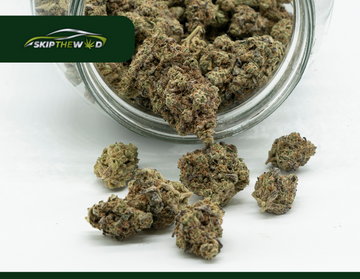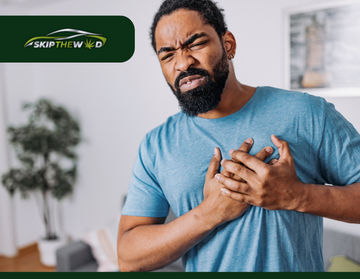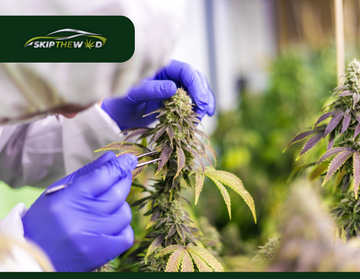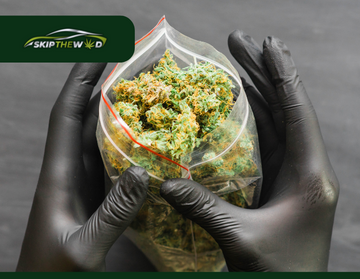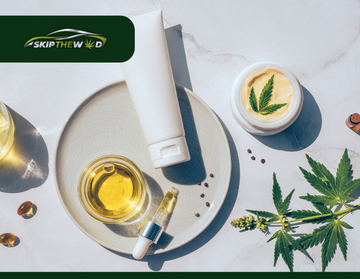Post-Traumatic Stress Disorder (PTSD) is a significant mental health issue affecting many veterans who have served in combat or experienced traumatic events. Traditional treatments for PTSD, including therapy and pharmaceuticals, may not work for everyone, leading to an ongoing search for alternative therapeutic options. Recently, medicinal cannabis has gained attention as a potential treatment for PTSD in veterans. This article explores the mechanisms by which cannabis may alleviate PTSD symptoms, the relevant research supporting its use, and considerations for veterans considering this treatment option.
Understanding PTSD
PTSD is characterized by a range of symptoms, including intrusive thoughts, flashbacks, severe anxiety, and emotional numbing. These symptoms can severely impact a veteran's daily life, relationships, and overall well-being. The disorder is often treated through a combination of psychotherapy, such as cognitive-behavioral therapy (CBT), and medications like selective serotonin reuptake inhibitors (SSRIs). However, not all veterans respond well to these conventional treatments, prompting the exploration of alternative therapies.
The Mechanisms of Cannabis in PTSD Treatment
Cannabis contains numerous compounds, primarily cannabinoids, which interact with the endocannabinoid system (ECS) in the body. This system plays a crucial role in regulating mood, anxiety, and stress response. The two most studied cannabinoids in cannabis are THC (tetrahydrocannabinol) and CBD (cannabidiol).
- 1. THC and Anxiety Relief
-
THC, the psychoactive component of cannabis, can produce euphoric effects and may help alleviate anxiety. Some studies suggest that THC can reduce the emotional responses associated with traumatic memories, potentially diminishing the severity of flashbacks and intrusive thoughts. However, it's essential to note that high doses of THC can also induce anxiety in some individuals, which highlights the need for careful dosing.
- 2. CBD and Emotional Regulation
- CBD, a non-psychoactive cannabinoid, has gained popularity for its potential therapeutic effects without the high associated with THC. Research indicates that CBD may help regulate mood and anxiety levels by interacting with serotonin receptors in the brain. This interaction can promote a sense of calm and reduce anxiety, making CBD an appealing option for veterans suffering from PTSD.
- 3. Endocannabinoid System and Trauma Response
- The ECS plays a vital role in the body's response to stress and trauma. Dysregulation of the ECS has been linked to anxiety and mood disorders, including PTSD. Medicinal cannabis may help restore balance to the ECS, potentially alleviating PTSD symptoms. By modulating the ECS, cannabinoids can influence stress responses, emotional regulation, and overall mental health.
Research Supporting Medicinal Cannabis for PTSD
A growing body of research suggests that medicinal cannabis may offer significant benefits for veterans with PTSD. Some key studies include:
- A 2019 study published in the Journal of Psychoactive Drugs found that veterans using medicinal cannabis reported a reduction in PTSD symptoms, including intrusive thoughts and hyperarousal. Participants noted improved sleep and a decrease in anxiety levels.
- A 2020 review in the Journal of Clinical Psychology highlighted that cannabis use was associated with a reduction in PTSD symptoms, particularly when using strains high in CBD.
- A 2021 study published in Frontiers in Psychiatry examined the effects of cannabinoids on PTSD and concluded that both THC and CBD could significantly reduce symptom severity and improve overall functioning in patients.
While these studies show promise, more extensive, controlled clinical trials are needed to better understand the long-term effects of cannabis on PTSD and to establish optimal dosing guidelines.
Considerations for Veterans Using Medicinal Cannabis
While the potential benefits of medicinal cannabis for PTSD are significant, veterans should approach its use with caution:
- Consultation with Healthcare Professionals
-
Before considering medicinal cannabis, veterans should consult with healthcare providers experienced in cannabinoid therapies. A comprehensive evaluation can help determine if cannabis is an appropriate treatment option based on individual needs and medical history.
- State Regulations and Access
-
Laws regarding medicinal cannabis vary by state, so veterans should familiarize themselves with local regulations regarding medical cannabis use. In some states, veterans may have easier access to medicinal cannabis through veteran health services or specific medical cannabis programs.
- Strain Selection and Dosage
-
Different cannabis strains have varying levels of THC and CBD, and their effects can differ significantly. Veterans should work with knowledgeable dispensary staff or medical professionals to select strains that best suit their needs. Additionally, finding the right dosage is crucial to maximize benefits while minimizing potential side effects.
- Monitoring Effects and Adjusting Treatment
-
Veterans using medicinal cannabis should monitor their symptoms and overall mental health closely. Keeping a journal of experiences, including changes in mood, anxiety levels, and PTSD symptoms, can help identify what works best. Regular follow-ups with healthcare providers can facilitate necessary adjustments in treatment.
Conclusion
Medicinal cannabis has emerged as a promising option for veterans seeking relief from PTSD symptoms, offering an alternative to traditional treatments. With its ability to help regulate mood, reduce anxiety, and promote better sleep, cannabis can play a significant role in the healing journey for many veterans.
Skip the Weed is committed to providing high-quality cannabis products that cater to various therapeutic needs. For veterans interested in exploring the potential benefits of medicinal cannabis for PTSD, we recommend the following strains:
- Gorilla Glue #4 strain: Known for its potent effects, this strain provides deep relaxation and stress relief, making it suitable for managing anxiety and improving sleep quality.
- Granddaddy Purple strain: This classic indica strain helps alleviate stress and promotes relaxation, which can be beneficial for veterans experiencing symptoms of PTSD.
- Sour Diesel strain: A sativa-dominant strain, Sour Diesel is known for its energizing effects, making it ideal for reducing anxiety and enhancing mood.
- Strawberry Cooler strain: With its sweet flavor and uplifting effects, this strain can help combat feelings of depression and improve overall mood.
- Zookies Kush strain: This hybrid strain offers balanced effects that can provide both relaxation and mental clarity, making it useful for managing PTSD symptoms.
Explore our range of products and consult with our team to find the best options tailored to your needs. Your journey to healing can start today with the right cannabis solutions.

